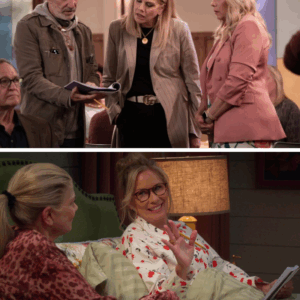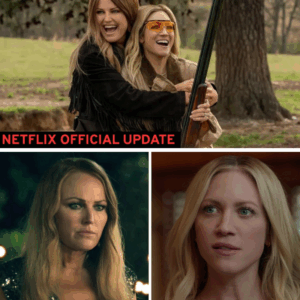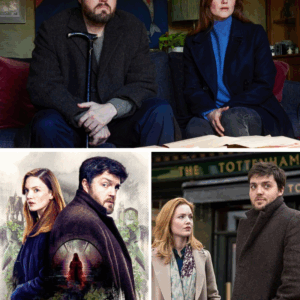When The Silence of the Lambs hit theaters on February 14, 1991, it redefined the psychological thriller genre, becoming a cultural phenomenon that swept the “Big Five” Academy Awards: Best Picture, Best Director, Best Actor, Best Actress, and Best Adapted Screenplay. Directed by Jonathan Demme and adapted from Thomas Harris’s 1988 novel, the film’s chilling narrative and unforgettable performances have left an indelible mark on cinema. At its core is Anthony Hopkins’ portrayal of Dr. Hannibal Lecter, a role that, despite occupying only 25 minutes of the film’s 118-minute runtime, remains one of the most iconic and terrifying in film history. Jodie Foster, who starred as FBI trainee Clarice Starling, has admitted to being so intimidated by Hopkins’ performance that she avoided him on set and still finds him unnerving years later. This article explores the release history, cast, plot, and the profound impact of Hopkins’ brief but electrifying performance, drawing on insights from web sources and fan reactions.
Release Schedule and Legacy
The Silence of the Lambs premiered at the 41st Berlin International Film Festival, where Jonathan Demme won the Silver Bear for Best Director. Released in the U.S. on Valentine’s Day 1991 by Orion Pictures, it was a sleeper hit, grossing $272.7 million worldwide on a $19 million budget, making it the fifth-highest-grossing film of the year. Its critical acclaim was immediate, earning a 95% approval rating on Rotten Tomatoes from 154 reviews and an 86/100 on Metacritic, reflecting “universal acclaim.” The film’s home media releases further cemented its legacy: it topped VHS rental charts in 1992, was released on DVD by Criterion in 1998, and saw a remastered Blu-ray by Criterion in 2018, followed by a 4K Ultra HD version by Kino Lorber in 2021.
The film’s awards season triumph in 1992, nearly a year after its release, was remarkable given Oscar voters’ short attention spans. It joined It Happened One Night (1934) and One Flew Over the Cuckoo’s Nest (1975) as the only films to win the “Big Five” Oscars. Its enduring influence is evident in pop culture, with Hopkins’ Lecter inspiring countless parodies and references, from his “fava beans and a nice Chianti” line to his chilling stare. Fans on Reddit and X continue to praise its rewatchability, with one user calling it “a flawless movie” that “hooks you from the first scene.”
The Cast: A Powerhouse Ensemble
The film’s success hinges on its stellar cast. Jodie Foster stars as Clarice Starling, a determined FBI trainee tasked with interviewing the incarcerated Dr. Hannibal Lecter to catch serial killer “Buffalo Bill” (Ted Levine). Foster, fresh off an Oscar win for The Accused (1988), lobbied hard for the role after Michelle Pfeiffer and Meg Ryan declined due to the film’s dark themes. Her performance, which occupies 56 minutes of screen time (47% of the runtime), is lauded for its vulnerability and strength, with Roger Ebert noting the “fear behind her eyes” as key to Clarice’s compelling courage.
Anthony Hopkins, cast as Hannibal Lecter after Sean Connery passed, delivers a performance that redefined cinematic villainy. Despite appearing for roughly 25 minutes (21% of the film, per ScreenTimeCentral.com), Hopkins’ presence permeates every scene. His Oscar win for Best Actor, despite such limited screen time, is a testament to his impact, beating out Robert De Niro (Cape Fear) and Robin Williams (The Fisher King). Supporting roles include Scott Glenn as Jack Crawford, Clarice’s FBI mentor, and Ted Levine as Buffalo Bill, whose disturbing performance led to typecasting but added to the film’s intensity. Anthony Heald and Kasi Lemmons round out the cast as Dr. Frederick Chilton and Ardelia Mapp, respectively.
The Plot: A Psychological Chess Game
The Silence of the Lambs follows Clarice Starling, a young FBI trainee sent to interview Dr. Hannibal Lecter, a brilliant psychiatrist and cannibalistic serial killer, to gain insights into catching Buffalo Bill, who skins his female victims. Lecter, imprisoned for eight years, agrees to help only in exchange for personal details about Clarice’s past, creating a tense psychological game. The film weaves themes of morality, gender dynamics, and trauma, with Clarice navigating a male-dominated FBI while confronting her childhood fears, symbolized by the screaming lambs she couldn’t save.
The narrative is a masterclass in suspense, with Demme’s direction and Ted Tally’s screenplay staying faithful to Harris’s novel. Key scenes, like Lecter’s escape and Clarice’s confrontation with Buffalo Bill in his Belvedere, Ohio, basement, are iconic for their tension and misdirection. A notable editing trick in the climax, where a locator suggests the FBI is raiding Bill’s home in Calumet, Illinois, only to reveal Clarice alone in Ohio, keeps viewers on edge. The film’s exploration of Clarice’s vulnerability—highlighted in an early scene where she’s dwarfed by male agents in an elevator—underscores her resilience, making her a relatable hero.
:max_bytes(150000):strip_icc():focal(723x92:725x94)/jodi-foster-513ad6e61fe8410596eeaffe0c5556b9.jpg)
Hopkins’ Haunting Performance and Foster’s Fear
Anthony Hopkins’ portrayal of Hannibal Lecter is a study in controlled menace. Despite his 25-minute screen time, his impact is monumental, with fans and critics noting that he “pervades every scene” even when absent. Hopkins drew inspiration from HAL 9000 in 2001: A Space Odyssey for Lecter’s calm, mechanical delivery and from his drama teacher Christopher Fettes for his unblinking stare, which he maintained to unnerve audiences. His preparation was meticulous: after reading the script’s first 10 pages, he called his agent, declaring it “the best part I’ve ever read.” Demme amplified this by having Hopkins stare directly into the camera, creating an intimate, unsettling effect.
Jodie Foster has been vocal about how Hopkins’ performance affected her. During a 2016 appearance on The Graham Norton Show, she revealed she avoided him on set, saying, “He was scary! We got to the end of the movie and had never really had a conversation.” At a table read in London, Hopkins’ chilling delivery sent “a chill over the room,” leaving Foster too scared to speak to him afterward. This fear was mutual, as Hopkins admitted to being intimidated by Foster’s recent Oscar win. Their limited interaction—often separated by a Perspex barrier in Lecter’s cell—enhanced their on-screen dynamic, with Foster noting the “eerie” set design, including the fluorescent lighting of Lecter’s cell, added to the tension.
A controversial moment arose when Hopkins improvised a line mocking Foster’s West Virginia accent, which she found humiliating. Foster later shared on The Graham Norton Show that this unscripted jab, combined with her efforts to perfect the accent, left her feeling “smaller, more fragile, and scared,” mirroring Clarice’s vulnerability. This incident, while uncomfortable, arguably deepened their scenes, as Foster channeled her real emotions into Clarice’s interactions with Lecter.
Why It Resonates: A Cultural and Cinematic Milestone
Hopkins’ brief but electrifying performance earned him a Best Actor Oscar, despite debates over whether he should have been in the supporting category. His 25 minutes (corrected from earlier claims of 16 minutes, per ScreenTimeCentral.com) outshine longer performances, with outlets like Looper noting that “every second is electric.” The film’s impact lies in its psychological depth, with Lecter’s stillness and intellect contrasting Buffalo Bill’s chaos, creating a layered exploration of evil. Fans on Reddit praise its rewatchability, citing themes of metamorphosis, gender dynamics, and power, with one user noting Rob Ager’s YouTube analysis for uncovering subtle motifs.
The film faced criticism from some quarters, with family-values advocates like Michael Medved calling it too gruesome and gay rights activists arguing Buffalo Bill stereotyped transgender people. However, its feminist undertones—Clarice’s struggle in a patriarchal FBI—and Foster’s empathetic portrayal have been widely celebrated. The FBI even used the film to recruit women, inspired by Clarice’s strength.
Looking Ahead
The Silence of the Lambs remains a benchmark for psychological thrillers, influencing films and series like Hannibal (where Hopkins reprised Lecter) and Mindhunter. Its legacy endures on streaming platforms like Max and AMC+, with fans on X calling it “a true masterpiece” that “never ages.” Hopkins’ performance, though brief, has become a cultural touchstone, with his “Hello, Clarice” (a misquote of “Good evening, Clarice”) endlessly referenced. For those yet to experience it, the film is a must-watch for its taut storytelling, unforgettable performances, and a villain who, in just 25 minutes, left even his co-star terrified.





